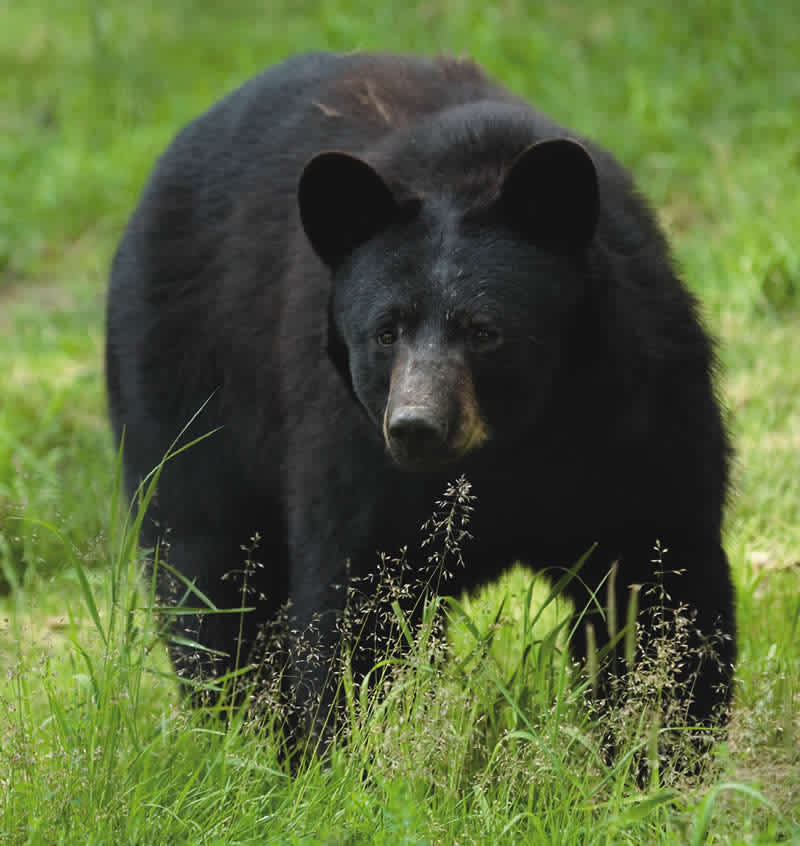Fatal Bear Attack in New Jersey Spurs Debate Between Hunters, Animal Rights Activists
OutdoorHub Reporters 09.25.14

The tragic death of a 22-year-old hiker near West Milford, New Jersey on Sunday represents the state’s first fatal bear attack in 150 years. The incident incited a heated debate between animal rights advocates and hunters on how the state is currently managing the bear population, and the conversation is not limited to New Jersey alone. Rising bear populations across the East Coast have many wildlife officials concerned, and in states like Maine where regulations surrounding bear hunting are on the November ballot, the fatal mauling has given the issue a sense of urgency.
According to Reuters, the body of Darsh Patel was found by his friends after they became separated from him in the 576-acre Apshawa Preserve. Police arrived to discover that the bear was still guarding Patel’s body, and euthanized the animal at the scene.
“This is truly a tragic event,” Judy Camuso, wildlife division director of the Maine Department of Inland Fisheries and Wildlife (DIFW), told Bangor Daily News. “As biologists, we work hard to reduce conflicts. We realize that this is always a possibility, but this is every wildlife manager’s worst nightmare.”
The DIFW recently outlined the reasons why it categorically opposed Question 1, an initiative on Maine’s November ballot that seeks to outlaw the use of baiting, hounds, and traps in harvesting bears—traditional and effective hunting practices for many sportsmen. Animal rights activists in Maine backed the proposal because they claim those methods are “cruel, unethical, and unnecessary.” In light of New Jersey’s recent bear mauling, some opponents of bear hunting continue to stress that education, rather than population management, should be a the forefront of the state’s bear program.
“There is no guarantee that any program can avert such a tragedy,” Susan Russell, wildlife policy director for the Animal Protection League of New Jersey, told NJ.com. “However, New Jersey must join other bear regions and get serious about restricting black bear access to human foods, primarily trash, bear/deer bait and foods brought to campgrounds, and maintain a comprehensive and rigorous education campaign.”
Animal rights groups say that hunting has little effect on controlling the bear population. On the other hand, hunters say that a greater amount of bear-related conflicts are all the more reason to expand hunting opportunities. Some biologists, such as Maine wildlife expert Deborah Perkins, assert that hunting is a vital tool to manage rising bear numbers.
“Mainers have no idea how fortunate we are to enjoy a large population of bears, while having very minimal bear-human conflicts,” she said. “It’s no accident. Our state biologists have been carefully, scientifically managing this population for decades.”
In New Jersey, hunters are calling for the DEP to push the hunting season earlier. Opening the season before the black bears approach hibernation means that hunters are likely to be much more successful.
“We’re looking to make towns, municipalities, and state government aware of the fact that this isn’t just a bloodsport,” said Anthony Mauro, chairman of the New Jersey Outdoor Alliance. “There’s a purpose behind it, and that’s population management.”
Experts believe that New Jersey is home to roughly 2,500 black bears, one of the highest population densities in the nation. Last year the DEP received reports of 572 bear sightings and 1,380 counts of bear-related damage or nuisance. This included 30 cases of home entry, 51 livestock kills, and four cases of aggressive behavior. There were no reported human attacks.

